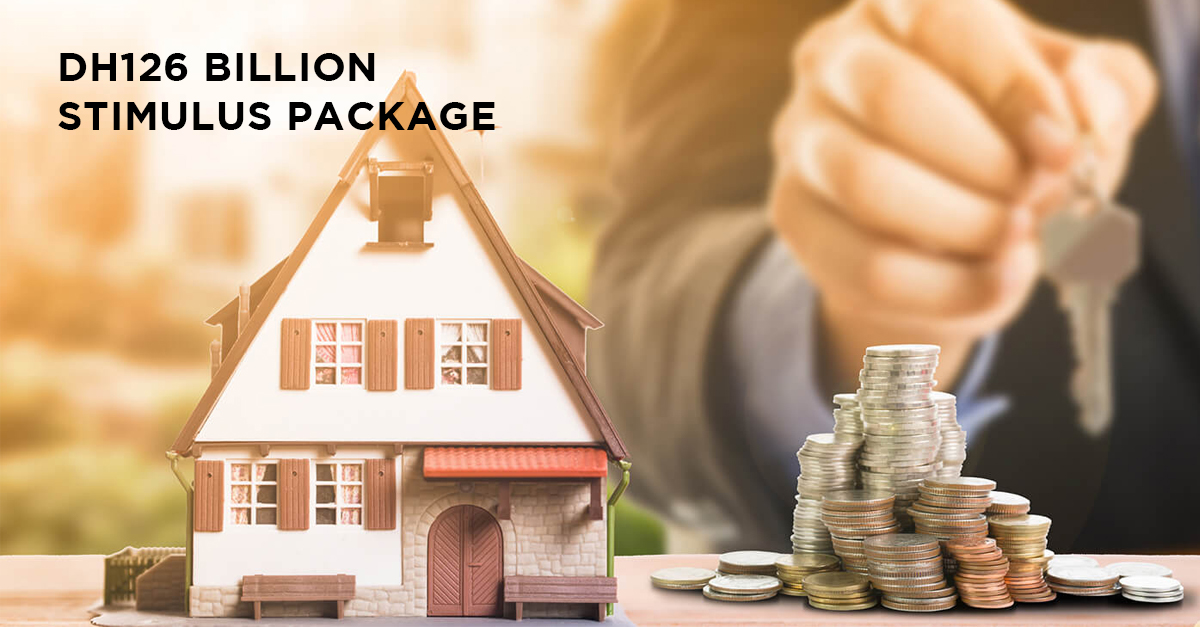Dh126 billion stimulus package: Impact and implications on UAE real estate
The UAE Central Bank has earmarked Dh126 billion as a stimulus package to offset COVID-19 induced economic stress. The package will be equally dispatched as zero-interest loans for local banks against collateral, and as funds to free-up capital buffers. Besides this initiative – which has been labeled the Targeted Economic Support Scheme – the Central Bank has over Dh405 billion in foreign currency reserves for sustenance, in the face of the pandemic. Concurrently, the Central Bank has also cut the interest rates by 50 basis points, following the Federal Reserve’s move to slash interest rates in the USA. Initiatives in the financial markets, combined with real estate-specific measures and the mega stimulus package, are expected to give the property market much-needed impetus, during these trying times.
Impact and implications on regional real estate
According to Savills research, the stimulus package is a shot in the arm for real estate in the medium-to-long term, as the industry gears up to avert a knee-jerk reaction to the COVID-19 outbreak and sustain its existing momentum(1). As swift as the disruption was, the industry is expected to rebound as soon as the crisis dampens, with renewed vigor. Besides the promising long-term outlook, the market is also upbeat about the conditions likely to prevail, once economic activity resumes close to pre-pandemic levels. The measures that have been put into effect are expected to incentivize buyers to invest, borrow loans and refinance mortgages.
It is an opportune time for first-time buyers to fuel their home buying aspirations, as interest rates hit decade long lows. Loan-to-value (LTV) ratios have also increased by 5 percentage points for first-time home buyers, based on the UAE Central Bank’s recommendations. Local banks can now leverage the benefits of the stimulus package and disburse loans more profitably, especially after the Central Bank Increased the maximum exposure that banks can have to the real estate sector from 20% to 30%. Meanwhile, the Abu Dhabi government has waived off the 2% property registration fee for the entire year which, in conjunction with promotional discounts and attractive borrowing rates, could help entice first-time expat buyers.
These preemptive actions, although aimed at the economy at large, are disproportionately – but understandably – favorable towards the real estate sector. The reason behind this is the real estate industry’s contribution towards the national GDP growth, which was hovering at around 25%, prior to the current disruption. The contribution is set to increase significantly in the lead up to the Dubai Expo, now rescheduled for 2021. A decrease in interest rates, and the subsequent financing costs, is expected to woo investors, to capitalize on the likelihood of increase in real estate valuation. The volatility on display in stock exchanges is an additional incentive for investors to explore options in real estate – an industry which, by virtue of its nature, remains relatively stable compared to other asset classes, particularly during unforeseen disruptions.
The latest financial initiatives have a direct bearing on existing mortgages, as the half a percentage point reduction in interest rates could encourage borrowers to refinance. As a result, a typical 30-year mortgage plan can be refinanced to shorter tenures, say a 15-year mortgage plan, leading to faster repayment and better mortgage terms. Borrowers can rake in considerable savings through refinancing mortgages, especially in the long run, which could inadvertently aid the financial market in weathering the economic storm as well.
Promising tell-tale signs
Despite a seemingly downbeat business sentiment across business and industry, Dubai registered a total of 10,243 real estate transactions in the quarter ending March 31, 2020, according to Data Finder, an affiliate of the Property Finder Group(2). In other words, Dubai witnessed a 9.74% year-over-year growth in property transaction volume, compared to 9,317 transactions in Q1 2019. The month of March alone accounted for 3,124 transactions worth around Dh7 billion. It’s important to note that 1,209 mortgage registrations were processed in March, which is a 24% year-over-year rise and the highest tally since October, 2019.
The preceding quarters have witnessed a month-on-month increase in transaction volume, reaching their zenith in November, thanks to decade-high affordability and favourable market conditions. Notwithstanding the possibility of a short-term downturn due to decline in demand from international investors facing travel restrictions, the real estate ecosystem could retain must of its pre-pandemic dynamism once conditions return to normalcy across the Emirates.
The first week of April witnessed 510 sales transactions worth Dh1.09 billion and the lock-down effect has not deterred residents from moving homes, as relocation services with permits are processing 10 to 20 requests in a day. This speaks volumes about the dynamism in the industry. Developers and agents are exploring digital avenues and implementing virtual marketing techniques, to keep business continuity, while the government is taking proactive and preemptive measures to insulate the real estate sector from the crisis at hand. From a big picture perspective, most of the strengths of the UAE real estate market are likely to be preserved, in the post pandemic world. In fact, it’s quite likely that investors, particularly those of international origin, may find the UAE real estate market even more lucrative, once some semblance of normalcy returns.




